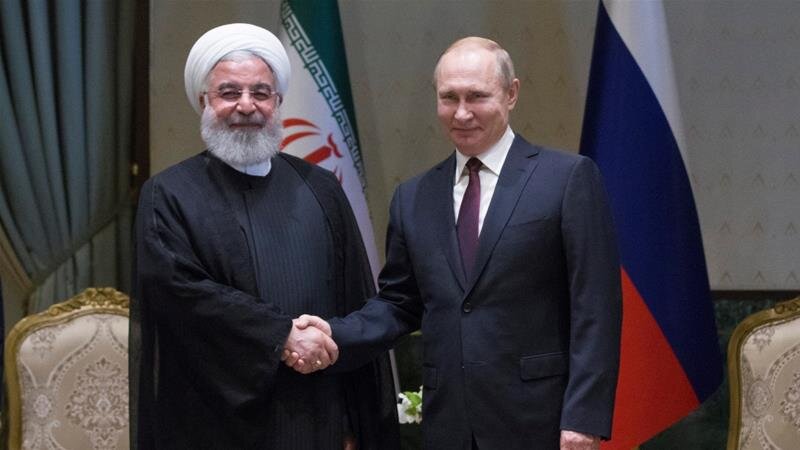Moscow: Russia-Iran interaction to continue despite surge in U.S. sanctions

Chairman of the Russian Federation Council's Foreign Affairs Committee has said the United States' sanctions activity will not stand in the way of Russia's further cooperation with Iran, Interfax reported on Tuesday.
"A meeting of the Russian-Iranian intergovernmental commission for trade and economic cooperation is due to take place this fall, and this interaction will continue despite the latest 'pre-election' surge of America's sanctions activity, which has already turned into some sort of background 'noise', not the most pleasant, but familiar to all, which has been accompanying numerous international processes. Everyone is starting to get used to it one way or another," Konstantin Kosachyov wrote on Facebook.
The remarks by Konstantin came in response to the White House's official announcement that U.S. President Donald Trump has authorized new sanctions targeting Iran and all those involved in arms supplies to the country.
The U.S. withdrew from the 2015 multilateral deal on Iran's nuclear program (Joint Comprehensive Plan of Action, JCPOA) and, "as a matter of fact, placed itself outside the international mechanism monitoring Iranian developments in this field," he said.
Besides, in summer, Washington undertook "a very powerful attempt to draw the UN Security Council into its sanctions games, first unilaterally declaring the 'reinstatement' of all international sanctions against Iran that existed before the JCPOA," Kosachyov said.
"And on August 14, the UN Security Council rejected a U.S.-sponsored draft resolution on extending the arms embargo against Iran. Only two countries - the U.S. itself and the Dominican Republic - voted for it. Even the U.S.' allies in NATO - France, the United Kingdom [UN Security Council permanent members], and Germany [a UN Security Council non-permanent member] - abstained. Having suffered this predictable fiasco on the diplomatic front, Washington returned to its more habitual language of ultimatums and sanctions," Kosachyov said.
This will entail the same effect, i.e. zero effect, he said.
"And, above all, this is true for Russia's cooperation with Iran, which was said, in particular, back in July, during a meeting of the foreign ministers of Russia and Iran, at which the sides highlighted the unacceptability and the illegitimate nature of unilateral restrictive measures aimed at blocking Iran's foreign economic ties," Kosachyov said.
